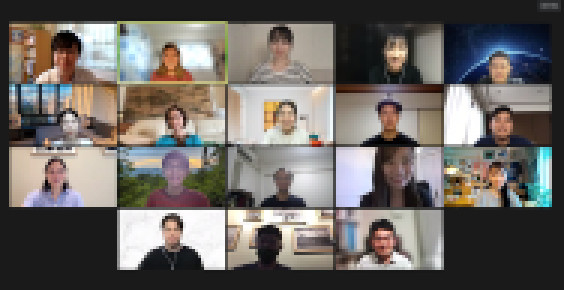- HOME
- Activities
- Forum List
- Forum Details
August.21.2021 KIP Forum "Can the Tokyo 2020 Olympics and Paralympics lead to a fairer and more inclusive society?"

Ms. Mara Budgen
Profile:
Ms. Mara is half-Italian and half-British with Asian heritage. She holds a Master’s Degree in Development Studies from the University of Cambridge, UK. She is a freelance journalist specialized in sustainable development, Editor-in-Chief of LifeGate.com, and a regular contributor for The Japan Times.
【Speech and Q&A】
In the speech by Ms. Mara, she mentioned “We the 15”, human rights movements which seek to end discriminations against people with disabilities, and talked about diversity. She also mentioned herself includes diversity, so she takes it for granted every single day. However, terms like a human right, equality, diversity and even accessibility have different meanings to different people, so she explained it is important to define what we’re talking about.
We also learned about the legislation for disability. As late as 2014, Japan ratified United Nations Convention on the Rights of Persons with Disabilities, which was adopted in 2006 and entered into force in 2008. This hesitancy in ratifying the Convention was explained in part by Japan’s desire to first update domestic low which was below the standard of the Convention. She noted, however, Japanese law still makes no reference to accessibility as human right. As for disability rights in general, the ultimate goal of disability right is to promote effective participation of all members of society on an equal basis with others. Then, she explained accessibility is the availability of smooth access to social infrastructure, facilities, equipment, products, and services for people of all ages and all abilities.
Mentioning Tokyo 2020 access guideline, she explained that we should pay attention to social contexts. For example, we should look at whether universal designs in the public facilities like the national stadium in Tokyo for Tokyo 2020 will be passed on to the other, more local sports facilities. In addition, we should also look at whether the shift towards universal access in transportation will be truly transformative outside of the Olympics and Paralympics bubble.
We also learned how attitudes towards disability change once the Paralympics have taken place and how important shifting people’s mindset is from the episode of Kuniko Obinata. Related to it, she explained that there are still tangible and intangible barriers in society and that’s why it’s important to go beneath the surface.
During the Q&A session, there were questions about how to think of people with disability from the point of social level and individual level such as “What is important in order not to show elitism and ableism in Paralympics?” “The reason why we separate Paralympics and Olympics,” and “How to behave to people with disability.”
【Group discussion and grand discussion】
The theme of the discussion was “Whether the Tokyo 2020 Paralympics have contributed to shifting attitudes towards disability in Japan and globally, and what their legacy is in terms of improving universal access infrastructure in Tokyo and beyond.” Some participants argued that it was difficult to judge whether the Tokyo 2020 Paralympics have contributed to shifting attitudes towards disability because Paralympics hadn’t started yet, or while coverage of Paralympics might have been affected by COVID-19 and might have enhanced negative impression, we might be able to pass on messages of Paralympic athletes by combining social media and individual SNS. Ms. Mara commented that while she acknowledged one of the opinions that media was not doing great job, media had too big job to have. In addition, she mentioned SNS had a risk that it can spread information instantly. Through these, I realized I have to think of how to handle information about disability.
【Opinion】
Through this forum I fully felt the actual conditions of attitude toward the disability because I used to turn my eyes away from disability in the back of my mind. The way of thinking of people around Kuniko Obinata before Nagano Winter Paralympics might be like my previous way of thinking. As Ms. Mara referred in the forum, there was no person with disability in this forum, so I don’t know whether we really could do discussion for people with disability. Therefore, I could again realize how important it is to listen to the opinions of people with disability.
(Ryūto Kawaguchi, Tokyo University of Science, Faculty of engineering, 2nd year)


